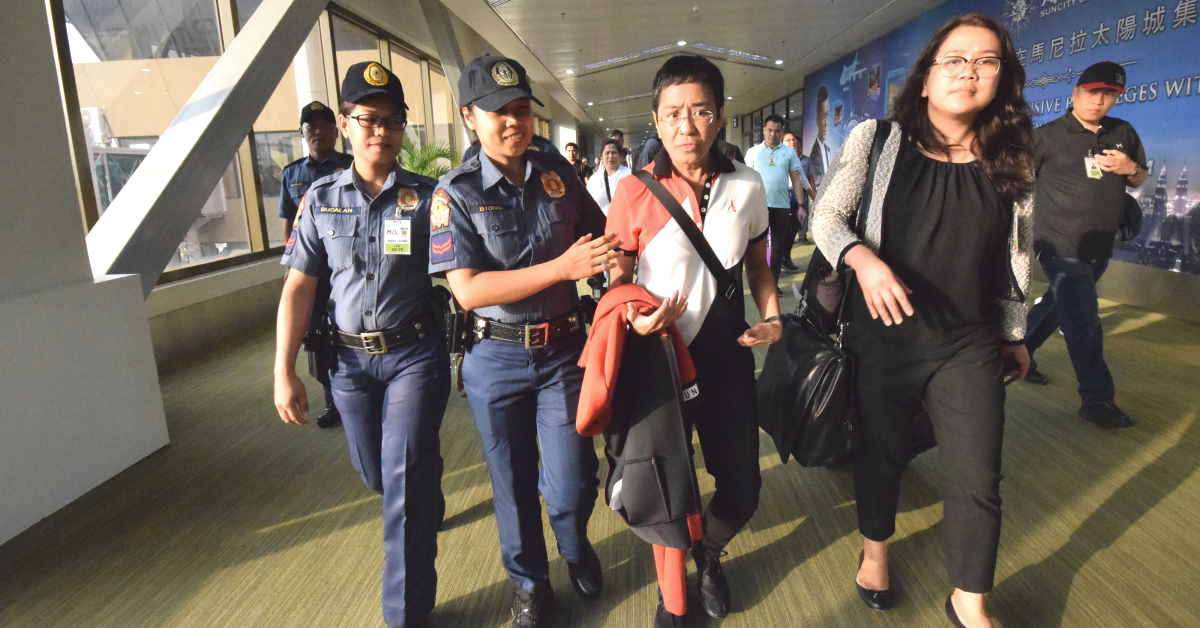Many nationalists and political analysts in the Philippines, and even the public, are asking why the Commission on Elections (COMELEC) has partnered with Rappler. This media entity, for many Filipinos, is perceived to be devoid of credibility, integrity, and most importantly, is the least trusted media entity in the country.
Based on the PUBLiCUS Asia Inc. second-quarter poll, which was a nationwide purposive sampling survey comprising 1,500 respondents drawn from a research panel of approximately 100,000 Filipino registered voters and conducted from 13-19 July, 2021 and published on 13 August, 2021, Rappler garnered the highest “Low Trust” rating among all media networks in the country.
It can be recalled that recently, COMELEC issued a press release stating that it was about to sign a Memorandum of Agreement (MOA) with Rappler sealing the partnership of the two entities as partners on voters' engagement fighting disinformation in relation to the 2022 National and Local Elections.
COMELEC Spokesperson DIR James Jimenez on 23 February, 2022, said, "We in the COMELEC believe that clean, credible, honest, and transparent elections require the assistance and vigilance of valuable partners. And we are always open to pursuing partnerships with private organizations, such as Rappler, that will help provide truthful information to the public and promote transparency and accountability in the electoral process."
What an ironic statement coming from the COMELEC spokesperson. Is the COMELEC not aware that Rappler is seen by the majority of Filipinos, as purveyors of fake news, disinformation, and bad journalism in the Philippines?
How can a government institution like COMELEC partner with a media entity that Filipinos don't trust that much when it comes to honest, balanced, and responsible news reporting and good journalism?
It is a wonder why COMELEC would settle with an entity like Rappler. Their credibility and integrity have been challenged by a number of issues, plus the fact that Rappler, and its CEO Maria Ressa, face legal cases in court.
Rappler Pending Cases In Courts
Aside from the fact that Maria Ressa faces a tax evasion case alongside other criminal cases pending in Philippine courts, she has been convicted of cyber libel in a case filed by Wilfredo Keng.
RTC Branch 46 of Manila convicted Maria Ressa and Reynaldo Santos Jr of violating Section 4(c)(4) of the Republic Act. No. 10175, otherwise known as the "Cybercrime Prevention Act of 2012."
It is necessary to point out that the conviction of Maria Ressa is not an issue per se of press freedom or the suppression of such freedom, but rather is an issue of "bad journalism and fake news," and the rule of law. One must understand that fake news and bad journalism are the "contrivance of duplicity" and are the complete opposite of legitimate news and the ethical exercise of good journalism. Fake news and bad journalism are the antitheses of media freedom and are threats to the flourishing of democracy in a country, particularly in electoral exercises.
Rappler and Maria Ressa violated Philippine Laws and the country's Constitution, particularly the constitutional ban on foreign ownership by allowing a United States (US)-based investor to participate in its operations. Article XVI Section 11(1) of the Philippine Constitution mandates that the control and management of mass media be limited to 100 percent ownership by Filipinos.
In a decision made public in March 2019, the Court of Appeals said that Rappler effectively allowed US-based investor Omidyar Network "to participate" in its corporate actions and decisions in violation of the Constitution, which requires media companies to be fully owned and managed by Filipinos. The court in effect backed the Securities and Exchange Commission's (SEC) decision to revoke Rappler's license.
What does this mean? It means that Rappler is a foreign-funded media outfit, contrary to what is provided for in the 1987 Constitution. Even a report showed that Omidyar donated around US$1.5 million in investment to 14 Rappler managers.
Hence, in many respects, Rappler violated the Constitution, the fundamental law of the land, and the country's existing laws and regulations.
In this regard, it is crucial to beg the question if COMELEC is indeed oblivious about all these or is just turning a blind eye?
Reactions
In the advent of the signing of the deal between COMELEC and Rappler, organizations like the National Press Club (NPC) of the Philippines expressed their opposition.
NPC President Paul Gutierrez, in a letter, said that "Rappler has a spotty record' in 'truthful' information dissemination, considering its record of gross bias in its reportage that resulted to its current legal woes."
The NPC letter was addressed to the acting chairperson of COMELEC, Commissioner Socorro Inting. It states, "While we respect the COMELEC's right to partner with anyone in order to ensure that the coming political exercise is "clean, credible, honest, and transparent, we believe that your choice of Rappler as a "valuable partner" in the dissemination of "truthful information" is a contradiction that is unacceptable to most Filipinos."
The letter further stated that the NPC is registering its protest because, just like most Filipinos, NPC wants to see and experience a clean, credible, honest, and transparent election, the result of which may well decide the country's future in the coming years. But the choice of Rappler by COMELEC as its partner, indeed, is a step in the wrong direction, according to the NPC.
On another note, Solicitor General Jose C Calida, the government's top lawyer, urged COMELEC to unilaterally rescind the MOA it entered into with Rappler for violating the Constitution and other laws, not to mention it is being onerous to the government and the republic.
Calida claimed that the provisions of the MOA would unwittingly grant Rappler, a foreign-funded entity, the monopoly of truths arising from its claimed fact-checking accreditation from international entities.
Furthermore, Calida also stressed that on 15 January, 2018, the SEC revoked Rappler's Certificate of Incorporation, in effect its license to operate, for violating the Constitution, P.D. No 1018, and the Anti-Dummy Law.
As such, Rappler does not have any legal personality to perform any corporate act, let alone enter into a MOA with COMELEC for the upcoming 2022 elections. The absence of the essential element of consent on the part of Rappler renders the MOA void.
Likewise, Calida's other important point is that as per the MOA between Rappler and COMELEC, Rappler is also given access to confidential data of registered voters, considering that COMELEC will share personal data with Rappler. The data-sharing agreement should have been executed under the National Privacy Commission Circular No. 16-02.
Hence, the Office of the Solicitor General (OSG) has posed a warning and urges COMELEC to rescind the MOA until 4 March, 2022. Otherwise, the OSG, as the People's lawyer, may have to file the necessary case in court to declare the nullity of the MOA by 7 March, 2022.
Conclusion
Amidst all the issues surrounding the deal between COMELEC and Rappler, including other relevant concerns in facilitating a clean, honest, and transparent May 2022 elections, Filipinos need to be vigilant.
Filipino voters must be alert not only in ensuring that their votes are counted but most importantly must be vigilant and sharp on how the COMELEC conducts itself as the elections are fast approaching.
The greater the vigilance among voters, the higher the chance COMELEC will be made accountable and transparent in its conduct and facilitation of the May 2022 local and national elections.
The views expressed in this article are the author’s own and do not necessarily reflect those of The ASEAN Post.

